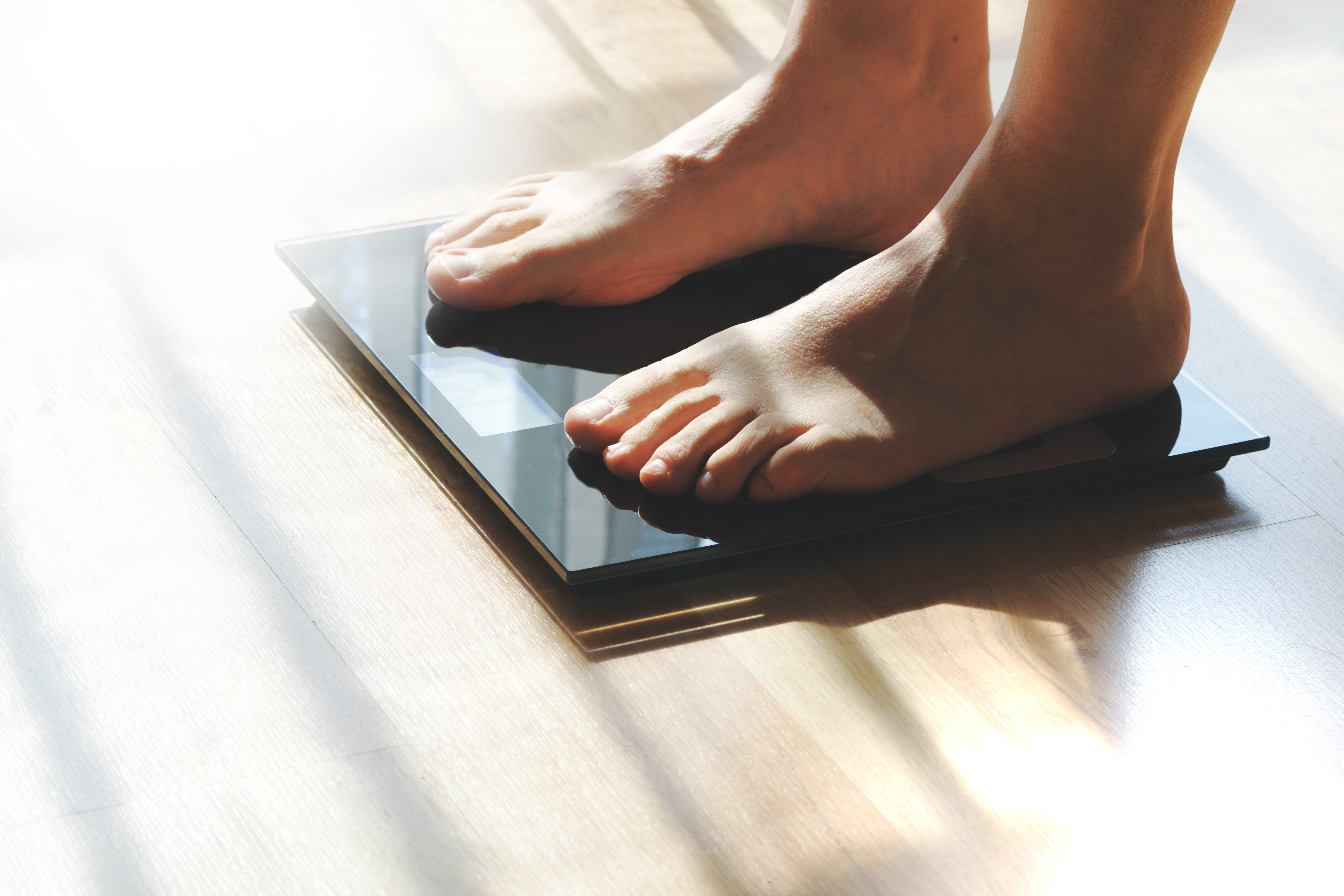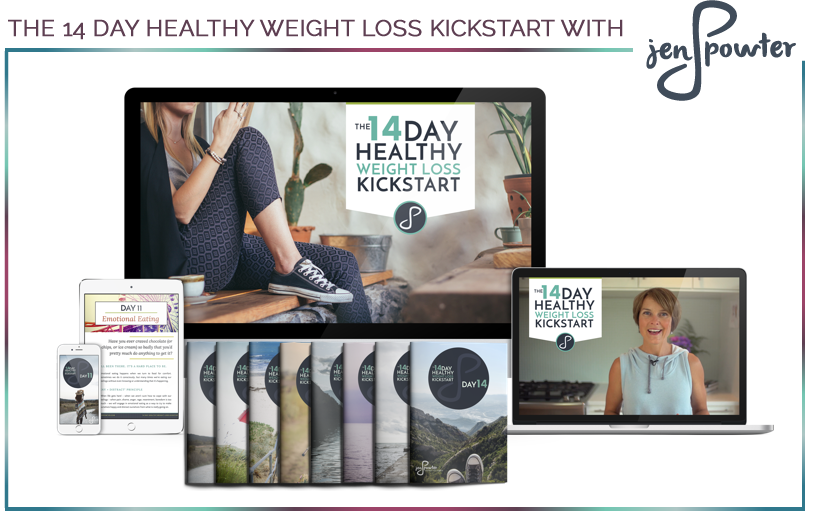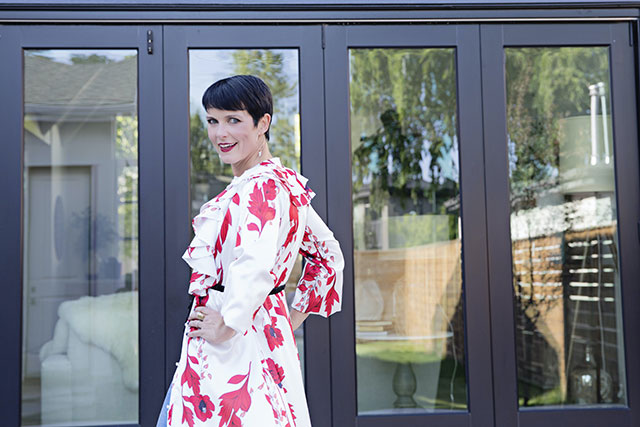Have a love/hate relationship with the scale?
Then, this is for you.
One of the biggest hurdles women face on their weight loss journey is effectively detangling their self-worth from a number. This number can instantly wreak havoc on your self-worth, the clothes you wear; if you are going to go out tonight and it rattles your confidence in seconds.
This is something I understand completely. I used to stand on the scale about 10-15 times every single day. The first thing I’d do in the morning is step on the scale. I’d eat and then step on it again; work out and step on the scale, before dinner, before bed… and the cycle would repeat.
Now, some weight loss experts will tell you to throw the scale out – don’t do anything that makes you feel bad. Others will say you need to weigh yourself every single day.
Who is right? What should you really be doing?
When you’re in a transformative experience, it’s easy to get lost in it or consumed by it. At the same time, if you don’t understand what the data is telling you, then you’re not utilizing all the tools available to you.
So, here’s what that relationship with your scale should really look like…
Tracking Equals Change
You can’t change something if you can’t track it.
Take your money, for example…
You may feel like because you’ve cut out your Starbucks run and extra trips to the drugstore that you should have more money in your account. But if you don’t take time to actually look at your numbers, then you never really know if what you’re doing is working.
It’s easy to feel like you are doing a good job with your weight loss and then step on the scale, see the number go up or stay the same, and feel like a failure.
You might feel like you’ve had healthy lunches this week, but you had a few nights of late night snacking or dinner out because of work or Happy Hour with friends.
It’s normal then that your feelings will be different from the data on the scale. All this means is you know lunches went well this week and for the coming week, you are going to be a little more conscious about the late night snacking.
You are taking a life-changing journey, and those are never going to be that quick. Instead, of beating yourself up about your choices, it needs to become data for your next steps forward.
The next critical component is remembering that the scale is just one of many data pieces you need to measure your weight loss.
All The Data You Need
Here’s what some of those other data pieces look like…
- What’s my energy like?
- What’s my mood like?
- How do my clothes fit?
- How’s my self-confidence?
- How’s my eating going throughout the day?
- How am I moving my body?
And yes, there is scale weight, too.
But why would you ever give your self-worth to an inanimate object? You have to look at so much more than what the scale is telling you.
This also means you can’t quit before you even let yourself be successful or let the scale dictate your journey.
A scale is simply a tool. This tool will help give you information if what you are doing is working or if you need a few tweaks, or if you need a better method.
If you’re unsure on this, you don’t have to go at this alone. I actually created The 14 Day Kickstart for this reason!
If you’re looking to get your courage back up to try the whole weight loss thing one more time OR you simply want to do it in a gentler way (no “all-or-none” tactics here).
In 14 days, discover the key strategies you absolutely need to know if you want to lose weight and keep it off. You’ll recieve daily emails, videos, and downloadable handouts to implement the tips every single day.
You’ll learn how to finally end the “all-or-none” approach – the one where you’re either living on egg whites and lettuce or consuming nothing but wine and chips.
Learn more about it here.
The Myth of Rapid Weight Loss
When I hear that women have lost rapid weight on a diet like Atkins, Paleo, Keto, etc., I always wish I was around to help that woman understand what’s really happening to their bodies.
That kind of weight is water weight. It isn’t fat mass that rapidly. That’s just fact.
And then what happens is, you can’t sustain those kind of extremes for the rest of your life. This is how women end up feeling bad about themselves.
But if you can truly understand that weight loss takes time and doesn’t require eliminating whole food groups or white-knuckling your way, then you will begin to understand how to make your weight loss a lifestyle and not a “diet.”
This also means you have to get a little science-y.
Scale Science
On an effective weight loss journey, you should weigh yourself 1-2 times a week – that’s it. From there, you have to understand what causes water retention (and likely the culprit many times when the number goes up).
Things that cause water retention…
- Salty meals
- Restaurant food with higher sodium counts
- Time of the month (during the menstrual cycle, there will be more water retention)
- Extra carb intake (carbs party with water)
These are times when you will see a higher water weight. You think it’s fat, but it isn’t. This is why you have to be consistent over time.
Think of yourself like a log on a fire – fat takes time to burn. It’s not going to create an instantaneous fat loss.
It’s not just about what you eat today, but what you eat tomorrow, Wednesday, and Friday so that on Monday when you weigh yourself, you’ll have a better indication into how that slow burn is going.
This is also why you have to be totally autonomous with your mindset. The scale is simply one tool you are using to track your weight loss.
Quick n’ Dirty Scale Stuff
Here’s the list you need to take with you. Feel free to copy/paste this, write it down yourself or take a screenshot…
- Stop weighing yourself every day – this is water fluctuation. You’ll be harder on yourself because of it and it’s not serving you.
- Weigh yourself Monday and Thursdays or Tuesdays and Fridays. Just one time on those days. (Preferably first thing in the morning)
- You’re creating change over time. You’re not expecting extremes. (No`15lbs in 7 days or any crazy thing you see on the cover of a magazine)
- Scale can’t be the only data piece – don’t forget about mood, energy, how your clothes fit, and confidence level.
You are better able to commit to weight loss when you weigh yourself once or twice a week consistently and pair it with the other tools.
When you track and pay attention to ALL of these things for a month – you will see weight loss happen. And not just that you will also feel happier and calmer on this journey. You will learn to pace yourself.
You’ll learn that weight loss takes time. The best way to lose weight is by committing to a lifestyle and foods you can see yourself doing 5 years from now.
The scale should be part of your momentum but not the impetus for nasty, negative abuse. Lean into the process of getting healthy, finding joy, and feeling good in your body.




